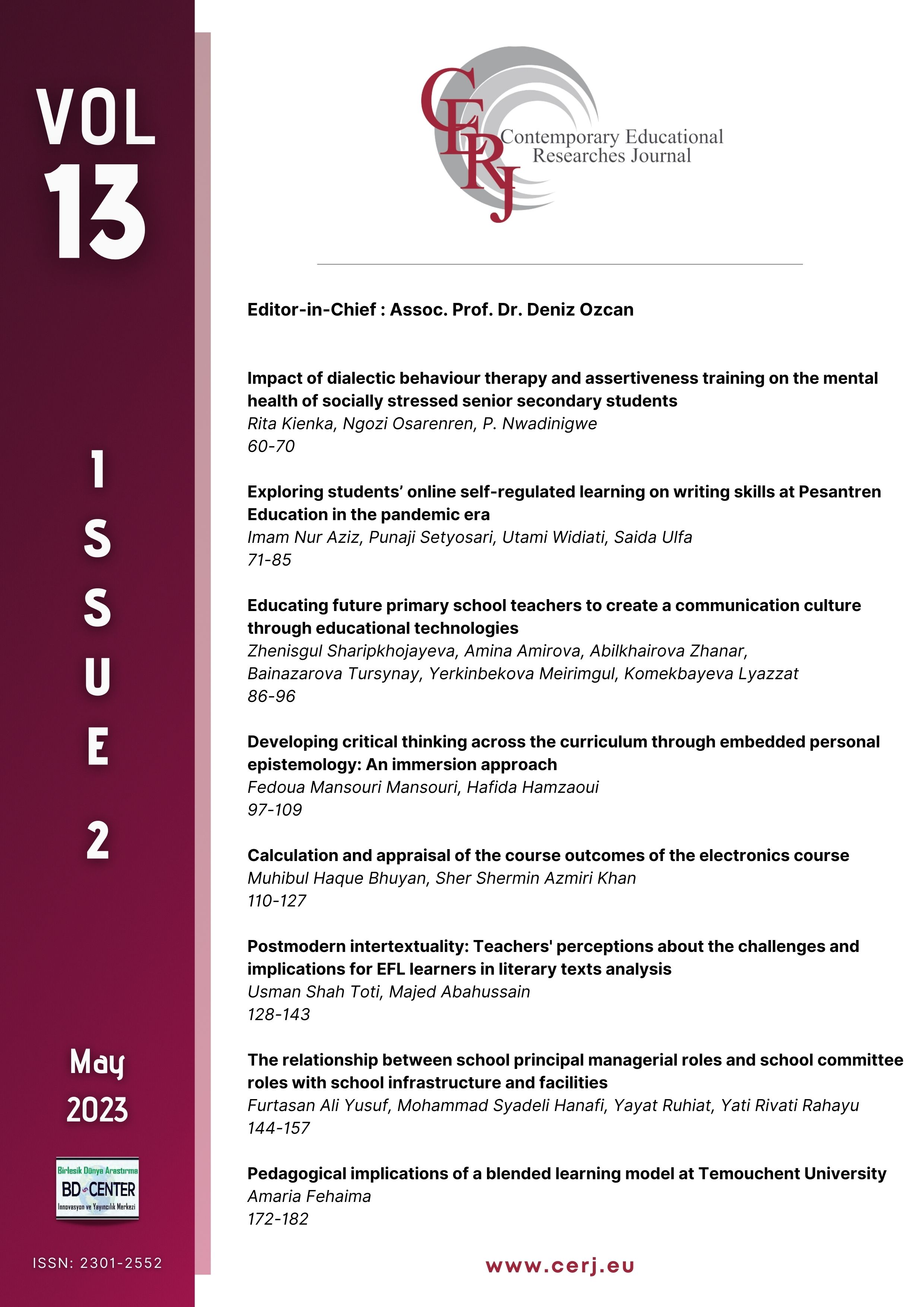Educating future primary school teachers to create a communication culture through educational technologies
Main Article Content
Abstract
The purpose of this research is to get the opinions of teacher candidates to train future primary school teachers to create a communication culture through educational technologies. This study was created with the qualitative research method. The study group of the research consists of 40 teacher candidates studying in the primary school teaching department at various universities in Kazakhstan. Research data were collected with a semi-structured interview form developed by the researchers. As a result, while the majority of primary school teacher candidates found themselves sufficient in using technology, they found themselves moderately competent in using educational technologies. Primary school teacher candidates stated that programs related to both educational technologies and creating a communication culture should be developed in universities. It is necessary to implement the suggestions of pre-service teachers on improving the communication culture and to organize the education given at universities in this direction.
Keywords: Communication culture; educational technologies; primary school; teacher candidates.
Downloads
Article Details

This work is licensed under a Creative Commons Attribution-NonCommercial-NoDerivatives 4.0 International License.
Authors who publish with this journal agree to the following terms:
- Authors retain copyright and grant the journal right of first publication with the work simultaneously licensed under a Creative Commons Attribution License that allows others to share the work with an acknowledgement of the work's authorship and initial publication in this journal.
- Authors are able to enter into separate, additional contractual arrangements for the non-exclusive distribution of the journal's published version of the work (e.g., post it to an institutional repository or publish it in a book), with an acknowledgement of its initial publication in this journal.
- Authors are permitted and encouraged to post their work online (e.g., in institutional repositories or on their website) prior to and during the submission process, as it can lead to productive exchanges, as well as earlier and greater citation of published work (See The Effect of Open Access).
